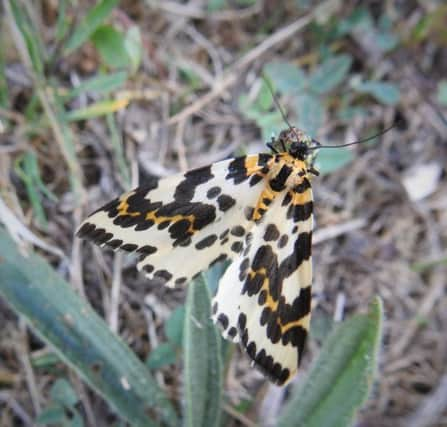Wildlife Column: Where did all the magpie moths go?


Their mode of locomotion was to grasp a small branch by a set of suckers at the rear end of the body, then extend forwards and grasp with their characteristic three pairs of insect true ‘legs’, and then pull the body forwards. This meant the main body of the caterpillars arched upwards i.e. ‘looped’. As kids we found all this fascinating though I suspect my parents weren’t too keen as the larvae munched their way through our soft-fruit harvest!
These caterpillars were the youngsters of the ‘magpie moth’ (so-called because of its distinct back-and-white markings), and otherwise called the ‘currant moth’; scientific name Abraxa grossularia.
Advertisement
Hide AdAdvertisement
Hide AdI suspect almost everyone at school had currant and gooseberry bushes at home as everyone was familiar with this member of the Geometrid family of moths. I seem to remember that the solution to our ‘looper problem’ was to get rid of the bushes and plant flowers instead!
The Wildlife Trusts’ website describes the species as ‘The Magpie is a medium-sized moth which is quite butterfly-like in appearance. It is on the wing during summer when it can be frequently found in gardens, as well as woodland, scrub and heather moorland. The caterpillars feed on a variety of shrubs, including hazel, hawthorn, privet and currants. The Magpie overwinters as a caterpillar and pupates in late spring.’ They do like blackthorn and scrubby heath areas as well as gardens. Whilst they are still widespread there is little doubt that this is another species that has declined. The reasons may be the same old same old of pesticides and habitat loss or degradation.
However, I did wonder whether any readers have their own memories of garden magpie or indeed have seen them or the lopper caterpillars recently. Do let me know if you recall seeing these when you were young or perhaps even more interesting, if you have recorded them recently, perhaps in your garden or somewhere close by.
Professor Ian D. Rotherham, of Sheffield Hallam University, researcher, writer and broadcaster on wildlife and environmental issues